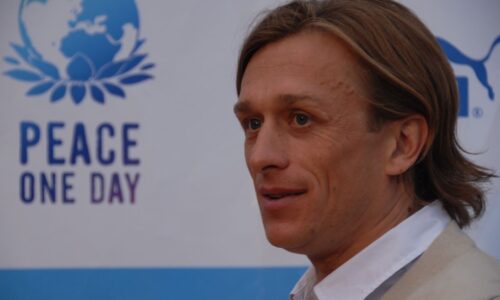For the first time in twenty one years, a French film has picked up the top honour at the Cannes Film Festival. Under the presidency of Sean Penn, the jury unanimously awarded the prestigious Palme d’Or to Laurent Cantet’s school drama The Class.
There were honours too for some of the higher profile characters along the Croisette, with Clint Eastwood and Catherine Deneuve both getting special prizes for their contribution to film, while Benicio del Toro got the best actor award for portraying Che Guevara in Stephen Soderbergh’s eponymous four and a half hour epic. Cannes favourites, Belgium’s Dardenne brothers, who’ve twice won the Palme d’Or in the past, picked up the best screenplay award for Lorna’s Silence – a powerful drama about an Albanian immigrant, working for a bunch of Belgian crooks, taking thousands of euros to secure residency for eastern European criminals.
The only British success was for the Turner-prize winning artist Steve McQueen, who was awarded the Camera d’Or for the best debut feature Hunger, about the IRA hunger-striker Bobby Sands.

And the only other British director up for an award was another artist, Sam Taylor-Wood, whose Love You More lost out in the official competition for best short film. She was one of many film-makers to take part in Question and Answer sessions up and down the Croisette during the twelve day event, telling the BBC’s Kirsty Wark about the production in front of a group of British film-makers at the beach-side UK Film Centre. Another British director giving newcomers the benefit of his experience was Mike Figgis, who was promoting his latest work, Love Live Long, in conversation with film critic Jason Solomons.
At many of the official screenings, those involved in the films themselves are upstaged by more glamorous stars who are just along for the ride Madonna and Sharon Stone, for example, were the talk of the red carpet, ahead of the Che premiere. But do such scene-stealers even watch the film? In that case, moments after the pair entered the theatre, the paparazzi were waiting by the back-door, hoping to catch them leaving before the movie had even started.

Celebrity status was put more productively to use in another film getting its first public airing. Documentary-maker Jeremy Gilley chronicled his attempt to get the United Nations to promote an international day of peace, in his film The Day After Peace. It was the participation of Jude Law and his surprise offer to accompany the director to Afghanistan that gave the campaign the boost it needed to succeed. It was perhaps ironic that at the after-party for a film which showed how celebrity could be used to manipulate the media, the media was pretty much denied access to the celebrities.
But most of the attention at Cannes is directed at the commercial “out of competition” films this year, Indiana Jones and the Kingdom of the Crystal Skull and Woody Allen’s Vicky Cristina Barcelona were among the higher profile festival successes. These are likely to be the big money-makers in the months ahead as companies from major studios to small sales agents work the market hiring hotel rooms, market-stands and screening rooms to lure in thousands of buyers from across the world, who spend twelve days criss-crossing Cannes, searching for the next big sleeper hit.
But while thousands of people are queuing up to watch features, big and small, at dozens of cinemas and screening rooms scattered across the town, the next generation of film-makers are trying to get anyone to watch their work at the Short Film Corner and on the Croisette itself, where Londoner Andy Greenhouse puts on his own festival: Cannes in a Van. For the second year running, he drove his bright yellow van down to the Riviera to exhibit dozens of the best shorts from around the world.
